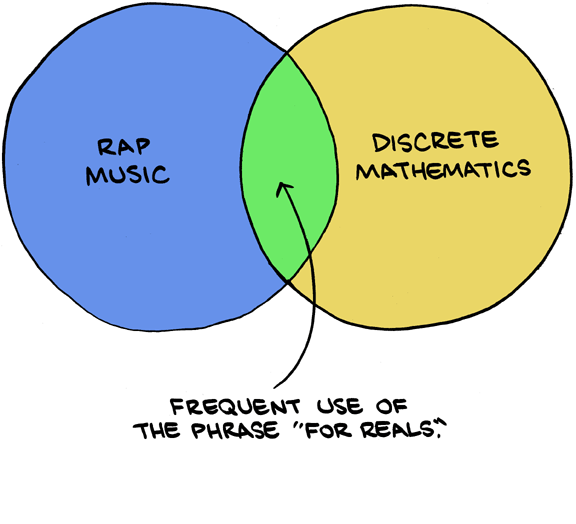Archive for May, 2012
Translinguistic taboo avoidance: Arabicizing "Ayrault"
Bloomberg reports (rather delicately) that the name of France's new prime minister, Jean-Marc Ayrault, is causing a bit of problem when it is transliterated into Arabic: "When spoken, his family name is colloquial Arabic in many countries for the third-person singular possessive form of the male sex organ." France's foreign ministry has nipped this problem in the bud, however, by issuing a statement with a recommended transliteration that will prevent people from reading Ayrault's name in Arabic as "(his) dick."
Read the rest of this entry »
Blizzard Challenge 2012
Every year since 2005, speech synthesis researchers have organized a yearly Blizzard Challenge, "[i]n order to better understand and compare research techniques in building corpus-based speech synthesizers". Part of the research effort involves the general public, who are invited to perform a series of evaluations of the results.
Participation takes about one hour in total — but your participation is registered, so that you can leave at any point, and then return and take the evaluation up again at the point where you left off. If you're willing, please follow this link to enroll and participate.
Read the rest of this entry »
A sentence more ambiguous than most
On Facebook, Fahrettin Şirin shared this special card for linguists and other lovers of ambiguity:
Read the rest of this entry »
It depends on what "the" means …
Semantics in the John Edwards trial (James Hill and Beth Lloyd, "John Edwards Defense Relies on Definition of 'The'", Good Morning America 5/13/2012):
Not since Bill Clinton challenged the definition of "is" has so much hinged on a very short word.
John Edwards appears to basing much of his defense, which begins today in a North Carolina courtroom, on the legal interpretation of the word "the." […]
The statute governing illegal receipt of campaign contributions "means any gift, subscription, loan, advance, or deposit of money… for the purpose of influencing any election for federal office."
The words "the purpose" suggests that in order for a conviction, the sole reason for the money would have to be to finance a presidential campaign.
Edwards' legal team has argued … that his main reason for hiding Hunter was to keep her secret from his wife, Elizabeth.
Prosecutors, however, are arguing the law should be interpreted to mean "a purpose," meaning use of the donations does not have to be solely for a political campaign.
Read the rest of this entry »
Bible Science stories, revisited
William Deresiewicz, "Capitalists and Other Psychopaths", NYT 5/12/2012:
THERE is an ongoing debate in this country about the rich: who they are, what their social role may be, whether they are good or bad. Well, consider the following. A recent study found that 10 percent of people who work on Wall Street are “clinical psychopaths,” exhibiting a lack of interest in and empathy for others and an “unparalleled capacity for lying, fabrication, and manipulation.” (The proportion at large is 1 percent.) […]
The only thing that puzzles me about these claims is that anyone would find them surprising.
The only thing that puzzles *me* about such claims is that they spread so far in reputable publications, over such a long period of time, despite being complete fabrications.
Read the rest of this entry »
Thurber on "Who and Whom"
In her review of Henry Hitchings' The Language Wars: A History of Proper English, Joan Acocella expressed some annoyance that Hitchings could dare to suggest "that the “who”/“whom” distinction may be on its way out". As evidence that this distinction was already in some difficulty almost 20 years before Ms. Acocella was born, I reprint below James Thurber's thoughts on "Who and Whom", which ran under the title "Our Own Modern English Usage: After Reading a Book on the Subject", in The New Yorker's issue of January 5, 1929.
The number of people who use "whom" and "who" wrongly is appalling. The problem is a difficult one and it is complicated by the importance of tone, or taste. Take the common expression, "Whom are you, anyways?" That is of course, strictly speaking, correct – and yet how formal, how stilted! The usage to be preferred in ordinary speech and writing is "Who are you, anyways?" "Whom" should be used in the nominative case only when a note of dignity or austerity is desired. For example, if a writer is dealing with a meeting of, say, the British Cabinet, it would be better to have the Premier greet a new arrival, such as an under-secretary, with a "Whom are you, anyways?" rather than a "Who are you, anyways?" – always granted that the Premier is sincerely unaware of the man's identity. To address a person one knows by a "Whom are you?" is a mark either of incredible lapse of memory or inexcusable arrogance. "How are you?" is a much kindlier salutation.
Read the rest of this entry »
"The world's oldest in-use writing system"?
[This is a guest post by Gene Buckley.]
I was catching up on my stack of New York Times magazines, and I came across a mini-article in their "One-Page Magazine" feature from January 15. I couldn't find it on their website, but here's the entire content:
How do you write that in Mandarin?
by Mireille Silcoff
Chinese characters comprise the world's oldest in-use writing system, but Chinese kids are forgetting how to get it on paper. The new term tibiwangzi ("take pen, forget characters") encapsulates the issue: nobody takes pen anymore. They type or text, often using Romanization. The China Youth Daily Social Survey Center says 4 percent of respondents are "already living without handwriting."
A fuller treatment of this subject may be found in an article entitled "In information era, handwriting growing obsolete in China" that appeared in the April 16, 2010 People's Daily.
Read the rest of this entry »
A half century of usage denialism
Yesterday, I discussed Joan Acocella's strange misreading of two essays introducing the fifth edition of the American Heritage Dictionary ("Rules and 'rules'", 5/11/2012).
John Rickford wrote that "the patterns of variation and change … are regular rather than random, governed by unconscious, language-internal rules and restrictions" — but Ms. Acocella took this defense of "vernaculars that are commonly regarded as lacking rules", from a scholar known for his defense of "Ebonics", as a stalwart affirmation of prescriptive standards.
Steven Pinker tried to explain how false beliefs about standard usage, like No Split Verbs or No Final Prepositions, can become widespread — but Ms. Acocella took this attempt to distinguish between true and false beliefs, from the author of a popular book on "Words and Rules: The Ingredients of Language", as promoting the idea that "there are no rules", other than the false "old wives' tales" he debunked.
If you've read Acocella's review, you will have noticed something else about this hallucinated debate: she's really angry about it. In particular, she doesn't care for Hallucinated Steve Pinker at all.
Read the rest of this entry »
Rules and "rules"
Philipp Sebastian Angermeyer writes:
Is there going to be a language log comment on the article "The English Wars" in the current issue of the New Yorker? I find it completely shocking to see that an author who purports to be writing about prescriptivism vs. descriptivism has so little understanding of the subject, and that the editor (presuming that such a position still exists at the New Yorker) would not catch the absurd claim that John Rickford is a prescriptivist.
Read the rest of this entry »
Extraordinary
In the comments on my post "Another Lie from George Will" (5/7/2012), GeorgeW asked
I think I hear Obama use 'extraordinary' and 'extraordinarily' a lot (an 'extraordinary' amount). Is there a way to check this in your data?
I responded
In 127 speech transcripts, in a total of 110,100 words, Obama uses extraordinary 17 times and extraordinarily once. That's a combined rate of 1000000*18/110100 = 163 per million words. In the 425-million-word COCA corpus, extraordinary occurs 13,360 times and extraordinarily 2,701 times, for a combined rate of 1000000*(13360+2701)/425000000 = 38 per million words.
So relative to the language at large, he (or his speech-writers) do use extraordinary a lot.
How this compares to political oratory from other sources is a different question.
Eugene followed up:
[W]ouldn't a president talk about extraordinary things from time to time?
Read the rest of this entry »
Misnegation of the month
From Lauri Karttunen (via Arnold Zwicky):
I have come to realize that there are a lot of examples on the web of the type "not want to not X" that seem to say the opposite of what they mean. Here are a few:
She failed to give the patient CPR and turned an ambulance away in the mistaken belief that the elderly woman’s had said she did not want not to be resuscitated. (Cambridge, UK, newspaper article)
If a guest does not want not to be disturbed they need only to place the 'Do Not Disturb" sign on the door and their wishes will be respected. (Florida motel)
In the first case, the mistaken belief was that the elderly woman did not want to be resuscitated. In the second case it should say "If a guest does not want to be disturbed …"
Read the rest of this entry »

